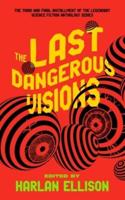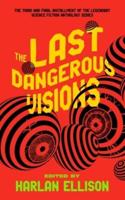Publisher's Synopsis
An excerpt from the second chapter:
Practical Occultism is a method of realizing the deeper psychological and spiritual life potentially existent within every creature, and which bears a practical significance to the daily experience of ordinary life. Higher truth, vision and life are not only for the great and eventful occasion; they should as well serve in every moment, even the most commonplace; for it is only as the psychological life becomes the normal every-day life that the path can be trodden and the goal finally reached. Above all, to understand such a practical view of occultism we must get away from the obsolete, perverted conception of occultism which obtained in those earlier days when interpretation of the occult had its first apostolate in the Blavatsky coterie. With the coming of Oriental philosophers and psychologists to this country, and with the efforts of scientific investigators such as Muller, Carus, Rhys-Davids, Oldenburg and others, a higher understanding of the truly occult was given expression. The "sham" side, the element of the ominous and of the mystery-mongering, was divested of its meaning and influence and for it was substituted that religio-psychological definition which is to-day accepted by leading thinkers.
Occultism is the modern revelation and symbolism of an ancient and well-guarded system of psychological philosophy involving a knowledge of psychology in comparison with which our modern psychology is relatively less fundamental. Occultism finds its greatest significance in the attainment of self-knowledge, that attainment which was suggested by the Greek of Pre-Socratic times. This self-knowledge is not merely a metaphysical conception of the nature of man. It has nothing to do with philosophy, for it is purely psychological. It is a psychical discovery of the essence and action of the mind and the control and direction of the will in relation to it.
The mind is usually considered either as an intangible abstract something having a nominal existence while its real existence is confused with the physical brain. There are even those who think themselves enlightened who persist in such a view. They speak of all thought as inseparably dependent upon the action of the molecules of the brain and the condition of the nerve centers. To them thought is but a secretion of the brain. This opinion is of little importance apart from a philosophical sense, but, in the light of any system of metaphysical speculation, it becomes a dividing line between the materialistic and spiritual thought.
The average person accustomed to viewing the external perceptible universe as the solely existent accords to it a greater reality than to his personal self. The visible and the tangible are alone real to him. The personal self is regarded as a shadowy reflection of the actual, external world. Naturally, his relation in conduct to such a theory is expressive of the material attitude taken. It is necessary to discuss the philosophical side of occultism because this is of singular importance and because it is by it alone that occultism can be understood and put into practice. So long as man believes himself to be identified with the outer world, so long as he believes he is under its provision and control, so long as he disbelieves in the superior reality of himself, so long will he remain ignorant of the occult and unaware of the great blessings and power which such knowledge imparts.










